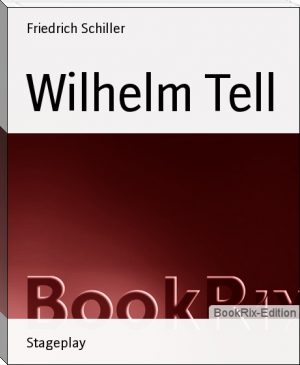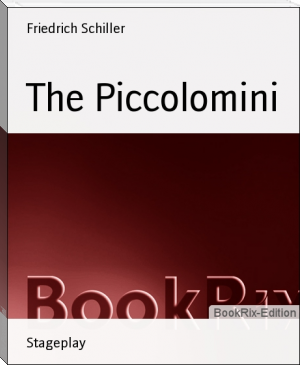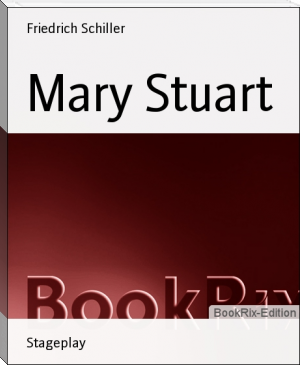Wilhelm Tell, Friedrich Schiller [best ebook reader for ubuntu .txt] 📗

- Author: Friedrich Schiller
Book online «Wilhelm Tell, Friedrich Schiller [best ebook reader for ubuntu .txt] 📗». Author Friedrich Schiller
him.
[13] This frequently occurred. But in the event of an imperial city being mortgaged for the purpose of raising money it lost its freedom, and was considered as put out of the realm.
[14] An allusion to the circumstance of the imperial crown not being hereditary, but conferred by election on one of the counts of the empire.
[15] These are the cots, or shealings, erected by the herdsmen for shelter while pasturing their herds on the mountains during the summer. These are left deserted in winter, during which period Melchthal's journey was taken.
[16] It was the custom at the meetings of the Landes Gemeinde, or Diet, to set swords upright in the ground as emblems of authority.
[17] The Heribann was a muster of warriors similar to the arriere ban in France.
[18] The Duke of Suabia, who soon afterwards assassinated his uncle, for withholding his patrimony from him.
[19] A sort of national militia.
[20, 21, 22, 23] Rocks on the shore of the Lake of Lucerne.
[24] A rock on the shore of the lake of Lucerne.
[25] An allusion to the gallant self-devotion of Arnold Struthan of Winkelried at the battle of Sempach (9th July, 1386), who broke the Austrian phalanx by rushing on their lances, grasping as many of them as he could reach, and concentrating them upon his breast. The confederates rushed forward through the gap thus opened by the sacrifice of their comrade, broke and cut down their enemy's ranks, and soon became the masters of the field. "Dear and faithful confederates, I will open you a passage. Protect my wife and children," were the words of Winkelried as he rushed to death.
[26] The Urphede was an oath of peculiar force. When a man who was at feud with another, invaded his lands and was worsted, he often made terms with his enemy by swearing the Urphede, by which he bound himself to depart and never to return with a hostile intention;
Imprint
[13] This frequently occurred. But in the event of an imperial city being mortgaged for the purpose of raising money it lost its freedom, and was considered as put out of the realm.
[14] An allusion to the circumstance of the imperial crown not being hereditary, but conferred by election on one of the counts of the empire.
[15] These are the cots, or shealings, erected by the herdsmen for shelter while pasturing their herds on the mountains during the summer. These are left deserted in winter, during which period Melchthal's journey was taken.
[16] It was the custom at the meetings of the Landes Gemeinde, or Diet, to set swords upright in the ground as emblems of authority.
[17] The Heribann was a muster of warriors similar to the arriere ban in France.
[18] The Duke of Suabia, who soon afterwards assassinated his uncle, for withholding his patrimony from him.
[19] A sort of national militia.
[20, 21, 22, 23] Rocks on the shore of the Lake of Lucerne.
[24] A rock on the shore of the lake of Lucerne.
[25] An allusion to the gallant self-devotion of Arnold Struthan of Winkelried at the battle of Sempach (9th July, 1386), who broke the Austrian phalanx by rushing on their lances, grasping as many of them as he could reach, and concentrating them upon his breast. The confederates rushed forward through the gap thus opened by the sacrifice of their comrade, broke and cut down their enemy's ranks, and soon became the masters of the field. "Dear and faithful confederates, I will open you a passage. Protect my wife and children," were the words of Winkelried as he rushed to death.
[26] The Urphede was an oath of peculiar force. When a man who was at feud with another, invaded his lands and was worsted, he often made terms with his enemy by swearing the Urphede, by which he bound himself to depart and never to return with a hostile intention;
Imprint
Publication Date: 05-21-2008
All Rights Reserved
Free e-book «Wilhelm Tell, Friedrich Schiller [best ebook reader for ubuntu .txt] 📗» - read online now
Similar e-books:





Comments (0)